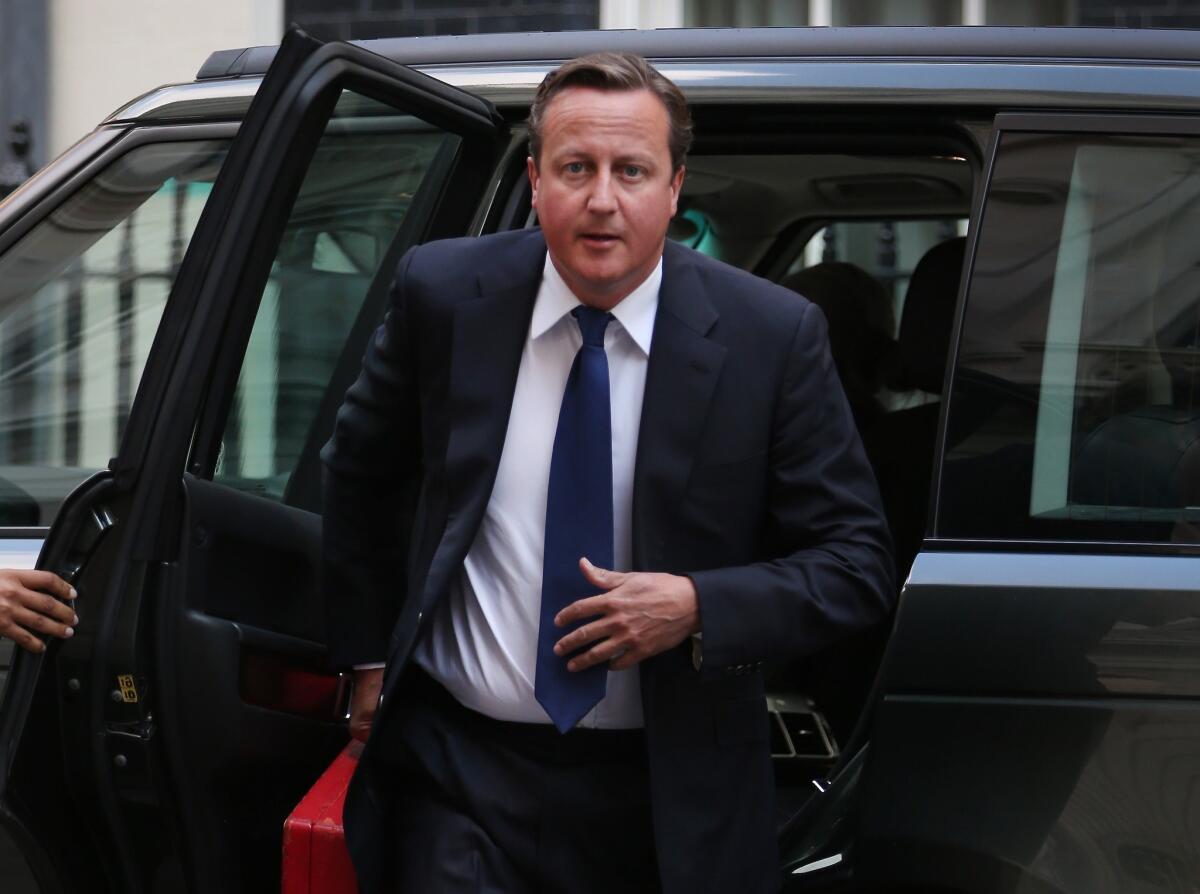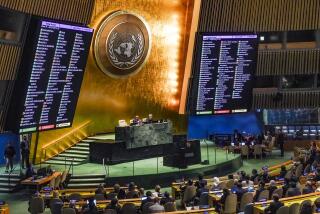Britain to seek U.N. OK to protect Syria civilians

- Share via
LONDON -- Britain said it would propose a resolution at the United Nations on Wednesday authorizing action to protect civilians in Syria from chemical weapons.
Prime Minister David Cameron did not specify what that action would be or whether the resolution would explicitly lay out military intervention, but the British leader was scheduled to meet with his national security advisors Wednesday to discuss military options that could include airstrikes on Syrian defense assets.
“We’ve always said we want the U.N. Security Council to live up to its responsibilities on Syria,” Cameron said. “Today they have an opportunity to do that.”
He said that the resolution would condemn the regime of Syrian President Bashar Assad for using chemical weapons and authorize “necessary measures for protecting civilians.”
On Tuesday, Cameron announced that he was recalling British lawmakers from their summer recess to debate intervention in Syria. Members of Parliament have demanded that his government clearly state the legal basis for such intervention.
Cameron’s intention to put a resolution before the Security Council signaled a desire to have U.N. backing for a military strike on Syria. But his foreign secretary, William Hague, has said that intervention could be in accord with international law yet still not have an explicit mandate from the U.N.
Lakhdar Brahimi, the special envoy to Syria at the United Nations, said Wednesday that international law clearly demanded U.N. sanction for any military intervention.
“President Obama and the American administration are not known for being trigger-happy. What they will decide I don’t know, but certainly international law is very clear. The Security Council has to be brought in,” Brahimi told reporters in Geneva.
[Updated, 4:16 a.m. PDT, Aug. 28: Brahimi said it is likely a chemical “substance” was used in an attack last week on a Damascus suburb.
“With what has happened on the 21st of August last week, it does seem that some kind of substance was used that killed a lot of people: hundreds, definitely more than a hundred, some people say 300, some people say 600, maybe 1,000, maybe more than 1,000 people,” Brahimi said.]
ALSO:
Syria chemical attack poses big test for Obama
Israel says it won’t stay on sidelines if Syria attacks
Israel may have intercepted Syrian discussions about chemical attack
Twitter: @HenryHChu
More to Read
Sign up for Essential California
The most important California stories and recommendations in your inbox every morning.
You may occasionally receive promotional content from the Los Angeles Times.










